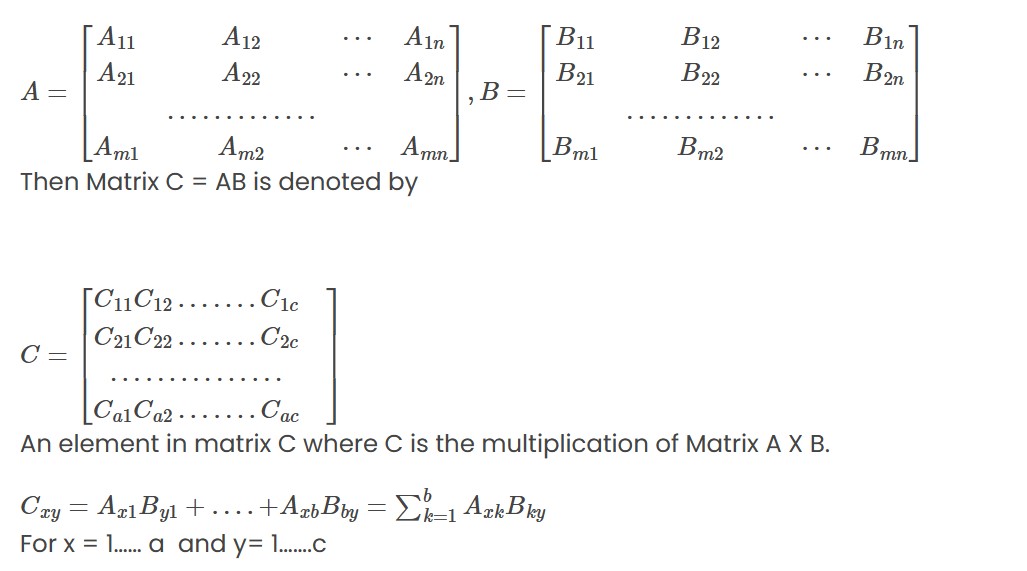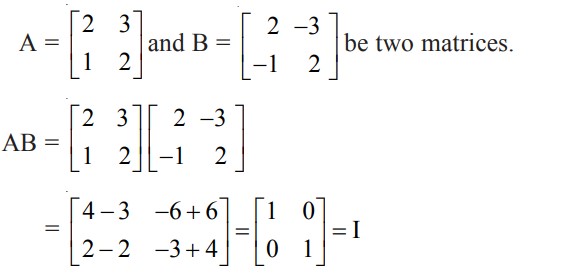Jagran Josh
CBSE 12th Maths Matrices Formulas: Check here for all the important formulas of mathematics Chapter 3 Matrices of Class 12, along with major definitions and properties
Maths Matrices Formulas: Matrices is one of the most important topics in mathematics. The CBSE Class 11 and 12 introduce students to many advanced concepts in mathematics, some of which have applications in other subjects as well, like physics, accountancy or computer science.
Two such chapters are Matrices and Determinants. Even though half the curriculum of Class 12 is composed of calculus, chapter 3 matrices is one of the most scoring and essential topics from an exam point of view.
Matrices is a formula-based topic and consists of various properties and multiple formulae to simplify the problems.
Here at Jagran Josh, we cover the list of all important formulas, definitions, and glossary of Matrices, along with relevant examples. You can check the CBSE Class 12 Maths Chapter 3 Matrices Formulas below.
Recommended:
CBSE Class 12 Maths Mind Map for Chapter 3 Matrices
CBSE Class 12 Maths Chapter 3 Matrices MCQs
CBSE Class 12 Maths Chapter 3 Matrices Formulas and Theorems
We have listed all the important formulas, properties and definitions of CBSE Class 12 Matrices here.
Important Terms and Definitions:
Matrix: An ordered rectangular array of numbers or functions.
Matrix Order: A matrix having m rows and n columns is called a matrix of order m × n.
Row Matrix: A matrix of order having only one row and any number of columns.
Column Matrix: A matrix having only one column and any number of rows.
Rectangular Matrix: A matrix of order m x n, such that m ≠ n.
Horizontal Matrix: A matrix in which the number of rows is less than the number of columns
Vertical Matrix: A matrix in which the number of rows is greater than the number of columns.
Square matrix: A matrix of order m×n is called square matrix if m = n.
Zero matrix: A = [aij]m×n is called a zero matrix, if aij = 0 for all i and j.
Diagonal matrix: A square matrix [aij]m×n is said to be diagonal, if aij = 0 for i ≠ j.
Scalar matrix: A diagonal matrix A = [aij]m×n is said to be scalar, if aij = k for i = j.
Unit matrix (Identity matrix): A diagonal matrix A = [aij]n is a unit matrix, if aij = 1 for i = j.
Addition/Subtraction of Matrices
Matrix multiplication is quite simple but you have to keep the following properties in mind.
*The order of two matrices should be same for addition or subtraction operations to be performed.
A = [aij]m x n and B = [bij]m x n
Then, A + B = [aij + bij]m x n
Properties:
- A+B = B+A
- (A+B) + C = A + (B+C)
- k(A+B) = kA+kB
- A + (-A) = 0
Scalar Multiplication
- k(A+B) = kA+kB
- kA = Ak
- (k1+k2)A = k1A+k2A
Matrix Multiplication
- AB ≠ BA
- (AB)C = A(BC)
- (B + C) = A.B + A.C

Matrix Transpose
The matrix obtained from any given matrix A, by interchanging rows and columns, is called the transpose of A and is denoted by A’ or AT.
If A = [aij]mxn and A’ = [bij]nxm then bij = aji, ∀ i, j
Properties:
- (A’)’ = A.
- (kA)’ = kA’
- (A + B)’ = A’ + B’
- (AB)’ = B’ A’
Inverse of Matrix:
If A is a square matrix of order m, and if there exists another square
matrix B of the same order m, such that AB = BA = I, then B is called the inverse
matrix of A and it is denoted by A-1
Example:

Hence, B is the inverse of A, in other words B = A-1 and A is inverse of B, i.e., A = B-1
Also Read
CBSE Class 12 Maths Syllabus 2023-24
CBSE Class 12 Maths Sample Paper 2023-24
NCERT Solutions for Class 12 Maths PDF
Class 12th Mathematics NCERT Book
CBSE Class 12 Maths Deleted Syllabus 2023-24
#CBSE #Class #Maths #Chapter #Matrices #Formulas #List #Important #Definitions #Properties
